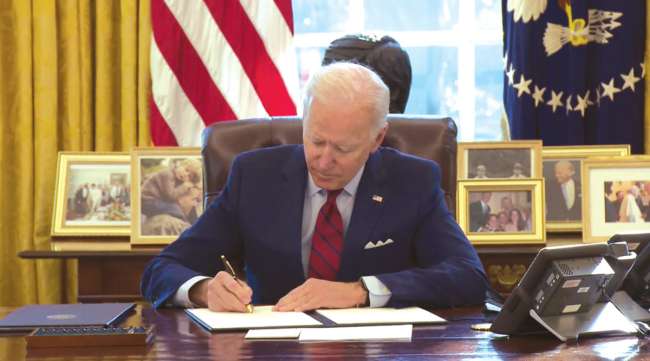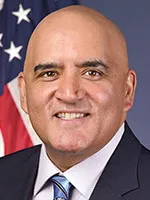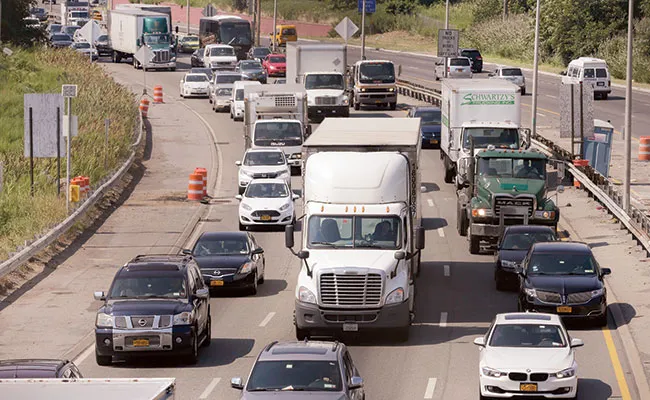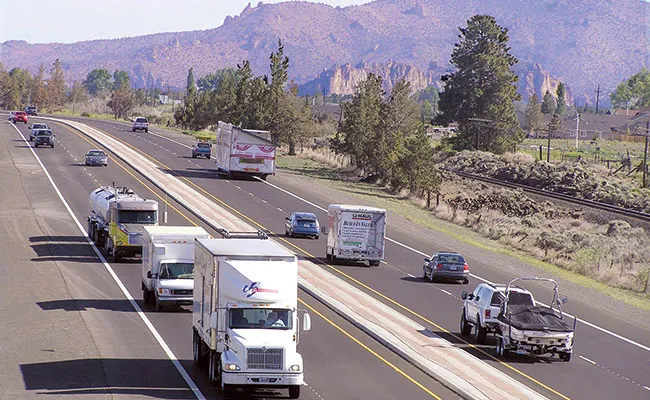Staff Reporter
State Group Sues Biden Administration Over Emissions Rules

[Stay on top of transportation news: Get TTNews in your inbox.]
A consortium of 21 states has filed a federal lawsuit claiming that President Joe Biden and his administration have overstepped their authority in taking steps to regulate greenhouse gas emissions.
In the 283-page civil complaint, filed Dec. 21 in the U.S. District Court for the Western District of Kentucky, in Paducah, the states maintain that only Congress is authorized to advance GHG rules and charge that Biden, Transportation Secretary Pete Buttigieg and Federal Highway Administration leader Shailen Bhatt have violated the law with a series of actions that target GHG reduction.
“President Biden is unconstitutionally ramming his radical climate agenda through administrative agencies that lack congressional authority to implement such actions. We will not stand by while this administration attempts to circumvent the legislative process,” said now-former Kentucky Attorney General Daniel Cameron, whose state is leading the legal challenge.

Buttigieg
In particular, the states are suing the U.S. Department of Transportation, the FHWA and individuals in their official capacities over a series of actions. Those charged include:
- Biden for signing executive orders 13990 (“Protecting Public Health and the Environment and Restoring Science to Tackle the Climate Crisis”) and 14008 (“Tackling the Climate Crisis at Home and Abroad”), making lowering carbon emissions a “national priority.”
- Bhatt for carrying out prescribed FHWA duties.
- Buttigieg for establishing/implementing USDOT’s National Highway Performance Program, which per the FHWA website “provides support for the condition and performance of the National Highway System, for the construction of new facilities on the NHS, and to ensure that investments of federal-aid funds in highway construction are directed to support progress toward the achievement of performance targets established in a state’s asset management plan for the NHS.”

Bhatt
The states accused DOT and FHWA of tying their 2022 federal proposed GHG rules for state DOTs and metropolitan planning organizations to reduce emissions to the Biden “administration’s target of net-zero emissions, economywide, by 2050.”
Each state maintained its sovereign right in the complaint, which listed five violations of law, including restricting how states use federal highway formula funds. The lawsuit was signed by the attorneys general of Alabama, Alaska, Arkansas, Florida, Idaho, Indiana, Iowa, Kansas, Kentucky, Mississippi, Montana, Nebraska, North Dakota, Ohio, Oklahoma, South Dakota, South Carolina, Utah, Virginia, West Virginia and Wyoming.
The filing pointed to past actions by federal transportation officials (before Biden took office) and maintains that there is no federal law regarding the National Highway Performance Program “that specifically directed or required” USDOT or FHWA to adopt a GHG measure.
Instead, the complaint said federal law encourages state DOTs and metropolitan planning organizations “to consider a variety of ways to incorporate environmental considerations under their existing authority.”
ERoad's Craig Marris gives advice on carving out a practical, effective road map to a greener and more efficient fleet. Tune in above or by going to RoadSigns.ttnews.com.
The states mentioned several deadlines and emission requirements they must now meet plus a new GHG performance standard added to FHWA national performance measures that will be used to evaluate how states perform in the National Highway System.
A six-page “Injury to States” section listed legal claims of harm that the regulations will cause. One rule requires states to establish, monitor and demonstrate progress toward declining emissions thresholds that will result in phasing out both sales of new internal combustion engine passenger cars by 2035 and unabated coal and oil power plants by 2040.
“Most Americans still drive internal combustion engine passenger cars, and America’s roads and infrastructure, including power grids, simply are not ready for the wholesale switch to electric vehicles,” the states claimed. “Coal still provides almost 20% of electricity in the United States, and provides over half of the electricity in eight states, including several of the plaintiff states. In Kentucky, almost 70% of all electricity is generated by coal. Missouri and Wyoming both draw over 70% of their electricity from coal, and in West Virginia, coal produces almost 90% of the state’s electricity."

Drivers navigate traffic along the Van Wyck Expressway in the Queens borough of New York. The attorneys general say that some measures to reduce emissions, such as congestion pricing, won't be effective in rural areas. (Frank Franklin II/Associated Press)
The complaint stressed that states with fewer urban centers have a harder time reducing emissions. “Many of the ideas for how states can decrease GHG emissions — congestion pricing, road pricing, ramp metering, increased coordination with transit and non-motorized improvements, paying fees to scrap low-mileage heavy duty vehicles — are options more conducive to metropolitan areas, not rural ones,” the coalition argued.
The states continued, “Drivers in rural states drive relatively long distances, often in heavy-duty vehicles required for business or agriculture or because they need to be able to maneuver effectively in inclement weather and through altitude changes. The distance and terrain also make non-motorized and electric options impractical.”
States will also be hit with economic implications and financial burdens, they said. The federal government estimated that the final emissions rule will cost up to $12.7 million for the first 10 years of implementation.

Vehicles on U.S. Route 97 in Oregon. The suing states note that people in rural states sometimes need to drive heavy-duty vehicles over long distances for business or agricultural reasons. (Oregon Department of Transportation)
Idaho Attorney General Raúl Labrador noted that his state is pursuing more than 700 projects to improve the National Highway System. “The federal government demanding a reduction in vehicle miles traveled is ridiculous,” Labrador said. “States simply cannot be forced to implement the policy whims of a federal government, and the Constitution is clear about this.”
Montana Attorney General Austin Knudsen declared, “This one-size-fits-all approach might work for the Washington, D.C., bureaucrats who cooked it up, but it won’t work for Montana.”
He said the emissions regulation will disproportionately harm states with more rural areas. For example, the average Montana resident drove 14,640 miles in 2020, which is 2½ times more than the average driver in Washington, D.C., he said.
Florida Attorney General Ashley Moody issued a statement noting that “states are required to set arbitrary targets for reduced CO2 emissions, to track progress toward said targets and report to the federal government goal progress. This rule forces states to spend an inordinate amount of time, resources and money with no clear guidance for what success looks like.”
Want more news? Listen to today's daily briefing below or go here for more info:





